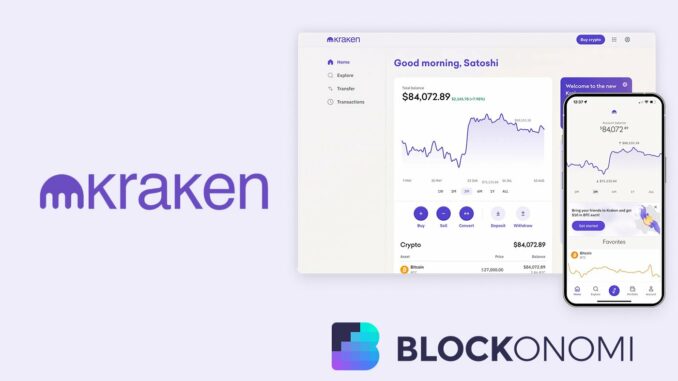
Kraken could be the next major exchange to launch a layer-2 scaling network. While not confirmed, speculation is rife!
Crypto exchange Kraken is the subject of speculation after a job listing surfaced on Tuesday. According to the post, Kraken is looking for a senior cryptography engineer to take on multiple responsibilities, including handling the “design and implementation of layer 2 solutions.”
The job descriptions also noted that the exchange is committed to developing and supporting new technologies that can make cryptocurrency more scalable, secure, and private. These include “Layer 2 technologies, zero-knowledge proofs, and multi-party computation,” among other on-chain scaling solutions.
Kraken Job Posting Hints at Upcoming Layer-2 Network Launch
Any “layer 2” details spark speculation of a possible layer-2 network launch. According to the sources familiar with the matter, Kraken is in talks with several industry players, such as Polygon, Matter Labs, and Nil Foundation, to build a layer-2 blockchain.
All three of these entities are working to develop and promote Ethereum Layer-2 solutions. Polygon is one of the leading layer-2 protocols offering various solutions for Ethereum, like sidechains, optimistic rollups, and ZK rollups.
Matter Labs is the company behind ZK Sync, a Layer-2 scaling solution that uses zero-knowledge (ZK) proofs to improve the scalability and privacy of Ethereum transactions. Nil Foundation is a developer of ZK technology; the company is working on zkOracle in partnership with Lido Finance.
Crypto media outlets reached out to Kraken, but the exchange either confirmed or denied the rumors of a Layer-2 network launch. A Kraken spokesperson said that the company is always looking for ways to improve its products and services and expand into new markets, but has no specific announcements to make at this time.
To wit,
“We’re always looking to identify and solve new industry challenges and opportunities. We don’t have anything further to share at this time.”
Kraken is set to share over 42,000 client accounts with the Internal Revenue Service (IRS) this month under a court order in June. In February, the U.S. Securities and Exchange Commission (SEC) accused the exchange of failing to register its staking-as-a-service program as a security.
Kraken denied the SEC’s allegations, but it agreed to settle the case with the federal agency and to discontinue its staking service to US customers.
Layer-2 Solutions: Are They the Real Deal?
Crypto enthusiasts are divided over the news that Kraken, a major cryptocurrency exchange, is considering building its own layer-2 network. Some argue that too many layer-2 solutions could lead to fragmentation, while others support the potential move, believing it would give users and developers more flexibility.
The competition between different layer-2 solutions could also lead to better solutions and lower fees. Currently, Optimism, Arbitrum, zkSync, and Starnet are the top layer-2 protocols.
In August, Coinbase, one of Kraken’s biggest rivals, officially launched Base, its layer-2 blockchain. Since its launch, Base’s total value locked (TVL) has gained significant momentum, especially with the hype surrounding SocialFi in recent months. As of November 2023, Base’s TVL has surpassed $550 million, driven by the minting of USDC.
However, there are also growing concerns about scams on Base. In recent months, fraudulent projects like SwirlLend and Magnet Finance have defrauded millions of dollars of investor money. It is estimated that 500 projects on Base are involved in scams or money laundering scams.
All layer-2 solutions have different trade-offs between scalability, decentralization, and security. That means more layer-2 solutions could help find a better balance between scalability, decentralization, and security.
Having more layer-2 solutions would also give users more choice. Users could choose the layer-2 solution that best meets their needs, depending on their priorities for scalability, decentralization, and security.





 Bitcoin
Bitcoin  Ethereum
Ethereum  Tether
Tether  XRP
XRP  USDC
USDC  Lido Staked Ether
Lido Staked Ether  TRON
TRON  Dogecoin
Dogecoin  Cardano
Cardano
Be the first to comment